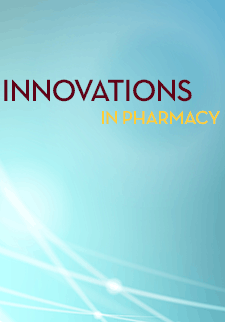Bridging the Gap: Collaboration between a School of Pharmacy, Public Health, and Governmental Organizations to provide Clinical and Economic Services to Medicare Beneficiaries
Rajul Patel
University of the Pacific
Mary Anne Choi
University of the Pacific
Dorothy Fan
University of the Pacific
Vincent Man
University of the Pacific
Cathy Thao
University of the Pacific
Thanh Thai
University of the Pacific
Michaela Vachuska
University of the Pacific
Milana Vachuska
University of the Pacific
Michael Xu
University of the Pacific
Cynthia S. Valle-Oseguera
University of the Pacific
Carly A. Ranson
University of the Pacific
Christopher Pham
University of the Pacific
Edward L Rogan
University of the Pacific
Mark P Walberg
University of the Pacific
joseph A Woelfel
University of the Pacific
DOI: https://doi.org/10.24926/iip.v9i1.986
Keywords: Medicare, Collaboration, Interprofessional eduction, Public Health, Medication Therapy Management, Health Screenings/Vaccinations
Abstract
Objective: Promoting healthy communities through the provision of accessible quality healthcare services is a common mission shared by schools of pharmacy, public health departments, and governmental agencies. The following study seeks to identify and detail the benefits of collaboration between these different groups.
Methods: In total, 112 mobile clinics targeting Medicare beneficiaries were held in 20 cities across Northern/Central California from 2007 to 2016. Under the supervision of licensed pharmacists, trained student pharmacists provided vaccinations, health screenings, Medicare Part D plan optimization services, and Medication Therapy Management (MTM) to patients at each clinic site. Clinic support was extended by public health departments, governmental agency partners, and a health professional program.
Results: Since clinic inception, 8,996 patients were provided services. In total, 19,441 health screenings and 3,643 vaccinations were collectively provided to clinic patients. We assisted 5,549 beneficiaries with their Part D benefit, resulting in an estimated aggregate out-of-pocket drug cost savings of $5.7 million. Comprehensive MTM services were provided to 4,717 patients during which 8,184 medication-related problem (MRP) were identified. In 15.3% of patients, the MRP was determined severe enough to warrant prescriber follow-up. In total, 42.9% of clinic patients were from racial/ethnic minority groups and 25.5% had incomes ≤150% of the Federal Poverty Level.
Conclusion: Collaboration between a school of pharmacy, public health departments, and governmental organizations can effectively serve Medicare beneficiary populations and result in: 1) lower out-of-pocket drug costs, 2) minimization of medication-related problems, 3) increased vaccination uptake, and 4) increased utilization of health screenings.
Conflict of Interest
We declare no conflicts of interest or financial interests that the authors or members of their immediate families have in any product or service discussed in the manuscript, including grants (pending or received), employment, gifts, stock holdings or options, honoraria, consultancies, expert testimony, patents and royalties.
Treatment of Human Subjects: IRB review/approval required and obtained
Type: Original Research


